ETH News
All stories that have been tagged with Neurosciences
Trust: an invisible glue
- Homehero
- News
- Globe magazine

When it comes to getting along together, trust plays an indispensable role. While we all have an intuitive grasp of what this interpersonal investment involves, even science struggles to express exactly how it works.
The pupil as a window to the sleeping brain
News

For the first time, researchers have been able to observe how the pupils react during sleep over a period of several hours. A look under the eyelids showed them that more happens in the brain during sleep than was previously assumed.
Four SNSF Advanced Grants go to ETH Zurich researchers
News

A biologist, a neuroscientist, a materials scientist and a physicist have each been awarded one of the prestigious grants of the Swiss National Science Foundation.
“Exercise and social interaction are key stress relievers”
- News
- Homehero
- Globe magazine
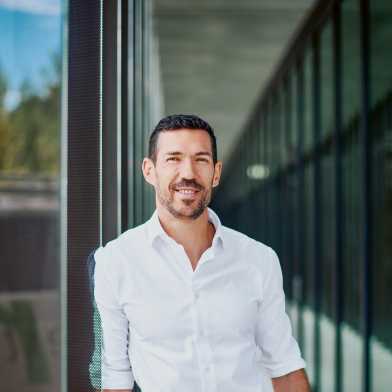
Neuroscientist Johannes Bohacek investigates the molecular basis of stress in the brain. He originally wanted to become a psychotherapist.
“We should take a more relaxed approach to sleep”
News
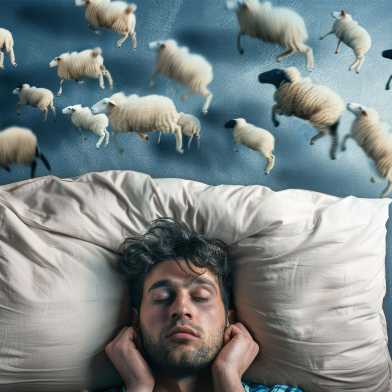
Sleep problems have become a widespread issue. In a new popular science book and in an interview with ETH News, ETH sleep researcher Caroline Lustenberger describes the do’s (and don’ts) for when you can’t get to sleep.
Behavioural analysis in mice: more precise results despite fewer animals
- Homehero
- News

Researchers at ETH Zurich are utilising artificial intelligence to analyse the behaviour of laboratory mice more efficiently and reduce the number of animals in experiments.
Flexible tentacle electrodes precisely record brain activity
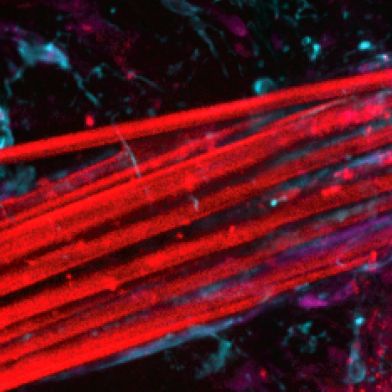
Researchers at ETH Zurich have developed ultra-flexible brain probes that accurately record brain activity without causing tissue damage. This opens up new avenues for the treatment of a range of neurological and neuropsychiatric disorders.
Separating the physical and psychosocial causes of pain
- News
- Homehero
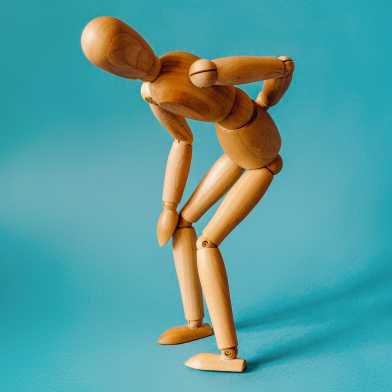
Not all pain is the same. Depending on the cause, it requires different therapies. A team led by ETH Zurich has now developed a method that enables physicians to better distinguish between physical and psychosocial pain.
Sport or snack? How our brain decides
News

The brain chemical orexin is crucial when we choose between sport and the tasty temptations that beckon everywhere we turn. This research finding could also help people who find it difficult to motivate themselves to exercise.
Bio-inspired neuroprosthetics: sending signals the brain can understand
News
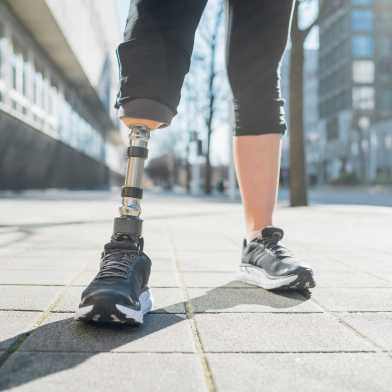
Prostheses that connect to the nervous system have been available for several years. Now, researchers at ETH Zurich have found evidence that neuroprosthetics work better when they use signals that are inspired by nature.
Visualising multiple sclerosis with a new MRI procedure
News
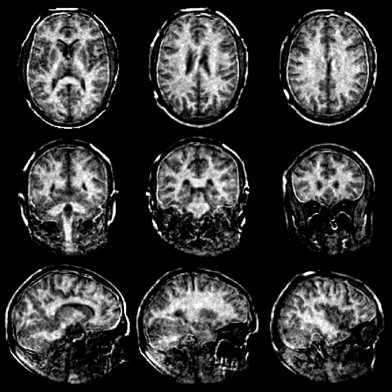
The loss of myelin sheaths in the brain is a hallmark of multiple sclerosis. Researchers at ETH Zurich have now developed an MRI method that maps the condition of this nerve insulation layer more accurately than before.
New agent blocks stress response
News

If the body’s natural stress response gets knocked off balance, it can result in physical and mental health disorders. Researchers at ETH Zurich have developed an agent capable of selectively inhibiting this response.
Clarifying the cause of Guillain-Barré Syndrome
News
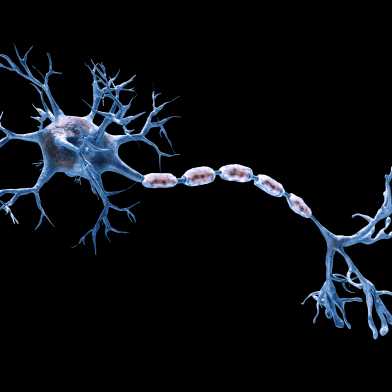
Guillain-Barré Syndrome is a rare condition in which a person’s immune system attacks the peripheral nerves. People affected suffer from muscle weakness and paralysis. A research team led by ETH Zurich has now clarified the mechanism of this autoimmune disease.
Riding sound waves in the brain
News
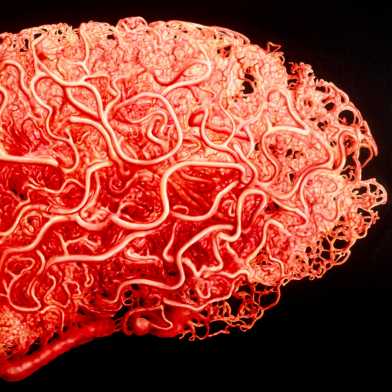
ETH Zurich researchers have shown for the first time that microvehicles can be steered through blood vessels in the brains of mice using ultrasound. They hope that this will eventually lead to treatments capable of delivering drugs with pinpoint precision.
Reducing anxiety and stress with pupil feedback
News
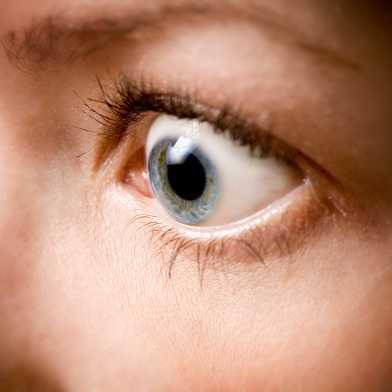
The brain’s state of arousal is the key to many stress- and anxiety-related disorders. Researchers at ETH Zurich have now found a way to influence it with a new biofeedback method.
Increased deep sleep benefits your heart
News
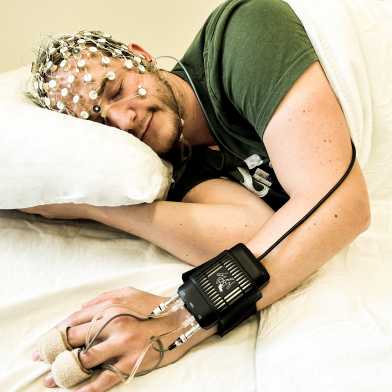
Stimulating the brain with gentle sounds during deep sleep significantly enhances cardiac function, according to a new study. This discovery could have implications not only for cardiovascular diseases but also for competitive sports, among other areas.
Genetically modifying individual cells in animals
News

Researchers at ETH Zurich have developed a method that lets them genetically modify each cell differently in animals. This allows them to study in a single experiment what used to require many animal experiments. Using the new method, the researchers have discovered genes that are relevant for a severe rare genetic disorder.
A human model for autism
News
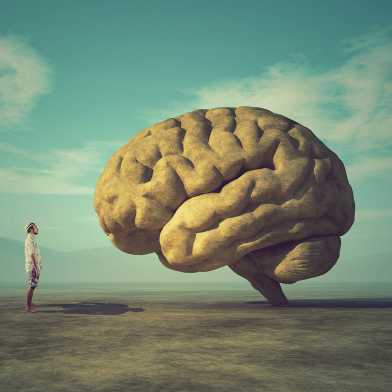
The CRISPR-Cas gene scissors enable researchers to study the genetic and cellular causes of autism in the lab – directly on human tissue.
Orexin influences pupil size
News
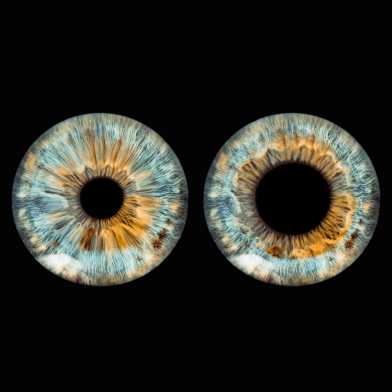
The way the brain regulates pupil size is different from previously thought: fundamentally responsible is the neurotransmitter orexin, as researchers at ETH Zurich have now shown. This discovery could well alter our understanding of consciousness and illnesses such as narcolepsy and Alzheimer’s.
Our visual perception is more rational than we think
News
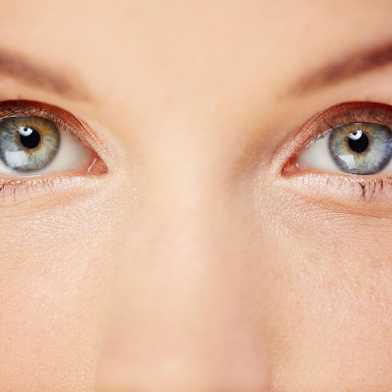
Our visual perception depends more strongly on the utility of information than previously thought. This has been demonstrated in a series of experiments conducted by researchers at ETH Zurich and the University of Zurich. Cognitive biases can begin at the retina.
Earpiece that speeds up recovery after a stroke
- News
- Homepage
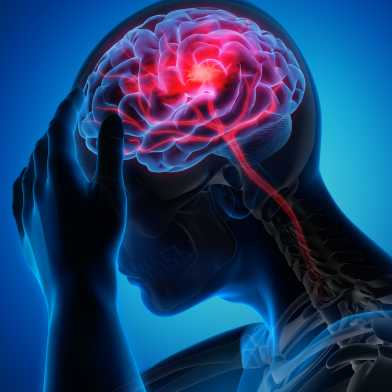
ETH Zurich researchers have developed a smart earpiece that helps people relearn physical actions faster and more easily after a stroke. By stimulating the brain, the earpiece helps it rewire neural circuits.
The power of habit
- Globe magazine
- News
- Homepage

Life is a constant stream of decisions that pit sober reflection against powerful emotions, conscious deliberation against gut instincts. Using complex models and sophisticated experiments, ETH researchers study how we combine these different decision-making strategies.
The legacy of trauma
Globe magazine

Emotional trauma can have far-reaching ripple effects and may even reverberate across generations. Professors Isabelle Mansuy and Katharina Gapp study how the effects of trauma can be inherited through epigenetic mechanisms.
Detecting hidden brain states
Globe magazine
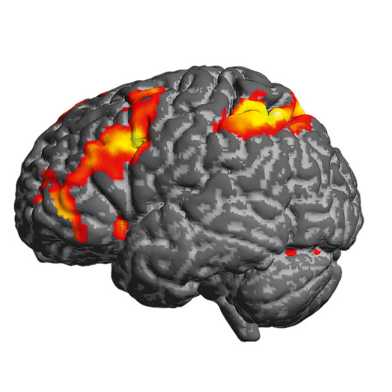
Mental health disorders can only be diagnosed on the basis of symptoms – and individual outcomes cannot be accurately predicted. An ETH scientist hopes to change that with the help of mathematical models.
Mapping human brain development
News
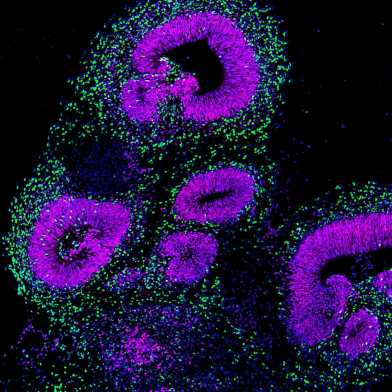
Researchers at ETH Zurich are growing human brain-like tissue from stem cells and are then mapping the cell types that occur in different brain regions and the genes that regulate their development.
Network assembly through cell division
News
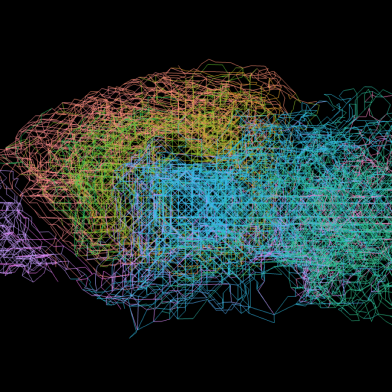
ETH Zurich researchers have developed a model that explains how nerve cells in the brain connect during development. Their model reveals that the crucial factor is progressive cell division. This process leads naturally to the formation of molecular addresses that lets neurons navigate.
Imaging the brain with ultrasound waves
News
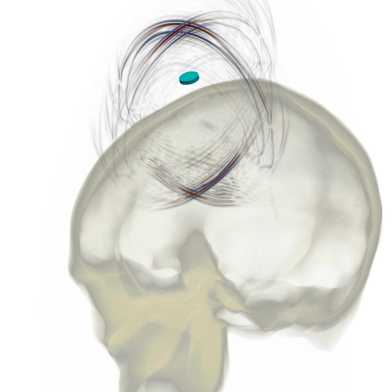
As wave specialists, seismologists map the structure of planets from the information that seismic waves carry. Now, the team led by ETH professor Andreas Fichtner is also using this knowledge for medical imaging.
Component for brain-inspired computing
News

Researchers from ETH Zurich, the University of Zurich and Empa have developed a new material for an electronic component that can be used in a wider range of applications than its predecessors. Such components will help create electronic circuits that emulate the human brain and that are more efficient at performing machine-learning tasks.
Swiss Science celebrates Hansjörg Wyss
- News
- Press release

Entrepreneur and philanthropist Hansjörg Wyss is one of the major private donors for Swiss science. Today, Wyss was celebrated as the laureate of the 2022 Gallatin Award of the Swiss American Chamber of Commerce.
Precursor of spine and brain forms passively
News
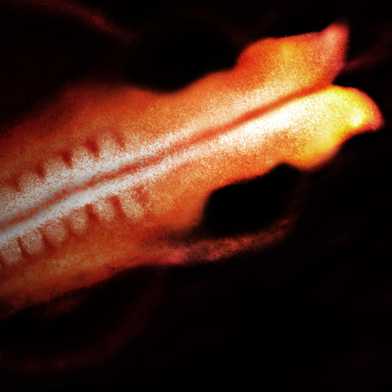
Researchers at ETH Zurich have conducted a detailed study of neurulation – how the neural tube forms during embryonic development. They conclude that this happens less actively than previously thought. This also has implications for understanding defects such as spina bifida.
Automated analysis of animal behaviour
News
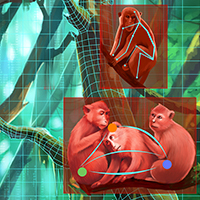
Researchers have developed a new method that uses artificial intelligence to analyse animal behaviour. This opens the door to longer-term in-depth studies in the field of behavioural science – while also helping to improve animal welfare. The method is already being tested at Zurich Zoo.
Enhancing deep sleep
News
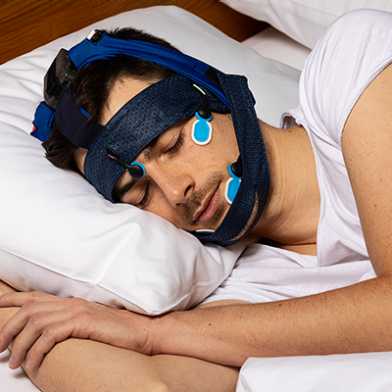
Researchers have developed a wearable device that plays specific sounds to enhance deep sleep. The first clinical study has now shown that the device is effective, but not at the same level of effectiveness for everyone.
Help rather than hinder
Zukunftsblog

Johannes Bohacek explains why it’s misleading to think we can completely replace animal testing with alternative methods, and why we should lower rather than raise the hurdles to research.
Why we feel confident about decisions we make
News

A team of researchers led by ETH Professor Rafael Polanía has shown for the first time that decisions feel right to us if we have compared the options as attentively as possible – and if we are conscious of having done so. This requires a capacity for introspection.
Master of neuromodulation
News
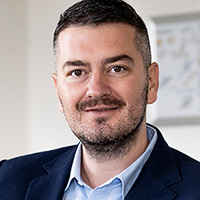
Stanisa Raspopovic connects the digital world of sensors and electrical circuits with the nervous system and its cellular circuits. Now he is the recipient of the 2021 ETH Zurich Latsis Prize.
When stress makes you sick
News

Chronic stress can decrease the quality of our lives, and have long-term negative effects on our health that may be irreversible. The new Hochschulmedizin Zürich flagship project STRESS aims to explore the causes of stress and highlight possible treatments.
Anxiety and the brain’s perception of inner-body signals
News

Using novel technology, researchers advance our understanding of anxiety’s connection to brain-body interactions. For the first time, they show how the brain perceives and predicts altered states of breathing; quantifying links between anxiety and the brain’s perception of the body’s inner signals.
Sensing the brain’s chemical signals
News

Nako Nakatsuka earned a place on this year’s MIT Technology Review’s Innovators Under 35 list for her invention of a precise chemical biosensor that empowers researchers to better understand brain processes and diseases such as Alzheimer’s, Major Depression, and Parkinson’s.
Across disciplinary borders
News

From genetics and personalised medicine to health insurance and climate change: at ETH Week 2021, 120 students from all degree programmes and from 31 countries grappled with the topic of “Health for Tomorrow”.
A deep dive into the brain
News
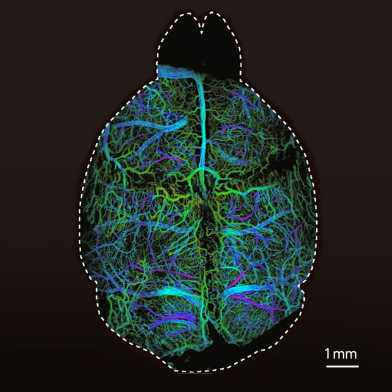
Researchers from ETH Zurich and University of Zurich have developed a new microscopy technique that lights up the brain with high resolution imagery. This allows neuroscientists to study brain functions and ailments more closely and non-invasively.
How trauma shapes our brain cells
News
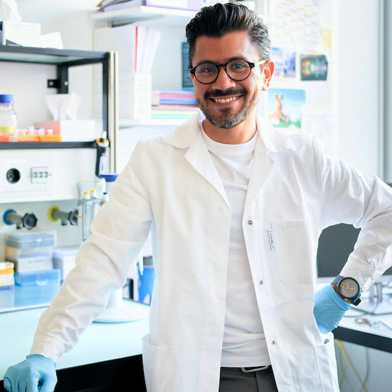
ETH Fellow Rodrigo Arzate-Mejia is studying how traumatic life experiences affect the brain, with a focus on epigenetic changes in brain cells.
Bigger synapses, stronger signals
News
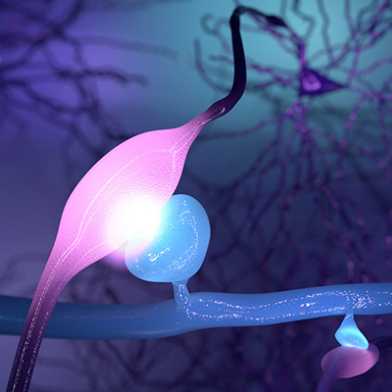
Nerve cells communicate with one another via synapses. Neuroscientists at the University of Zurich and ETH Zurich have now found that these connections seem to be much more powerful than previously thought.
We need a Grey New Deal
Zukunftsblog

Mental illnesses do not receive the attention they deserve and they are treated as taboo, writes Gerhard Schratt. Taking a cue from the Green New Deal, he proposes a Grey New Deal.
Robots that cut, bees that bite
News
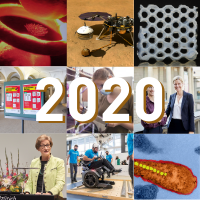
An extraordinary year is drawing to a close. ETH News takes a look back at the highlights that emerged amidst difficult and unsettling times, at ingenious ideas, fascinating science and solidarity in action during – and despite – the coronavirus pandemic.
Recording thousands of nerve cell impulses at high resolution
News
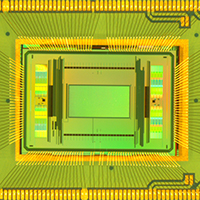
ETH researchers have developed a new generation of microelectrode-array chips for measuring nerve impulses, enabling studies of how thousands of nerve cells interact with each other.
Microelectronics shed light on neural behaviour
News
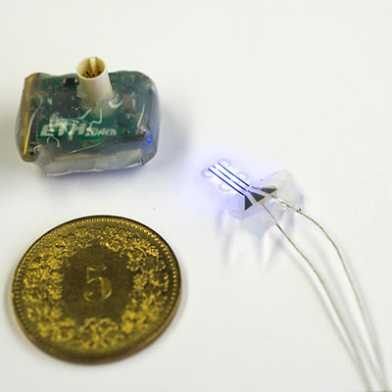
Researchers at ETH Zurich – in collaboration with colleagues from EPFL in Lausanne and Harvard Medical School – have developed a system that allows them to optically stimulate individual nerve fibres in living mice. Through this process, they have demonstrated that the nervous system has a direct influence on the immune system.
Brain game
Globe magazine
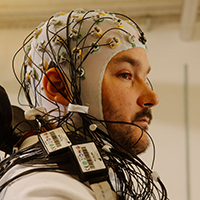
He can play a computer game using thought alone. Samuel Kunz, who has tetraplegia, is currently training with researchers from Zurich and Singapore for the next Cybathlon.
“We take rehabilitation to also mean inclusion.”
Globe magazine
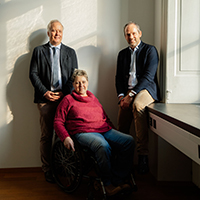
ETH Zurich aims to step up rehabilitation research and education with the Rehab Initiative. But how are the needs of people with disabilities best met? To discuss the issues, we hosted a roundtable with a physician, a person with a disability and a researcher.
Joking aside
Globe magazine
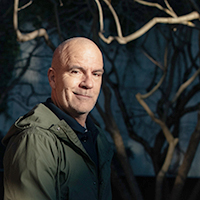
Guy Landolt had just begun a run of solo stand-up shows when, completely out of the blue, he was hit by two strokes within 24 hours. Among other things, the comedian lost the ability to speak. Following intensive training, he’s now back on the stage.
Finding the positives
Globe magazine

Heinz Frei is one of the most successful Swiss athletes of all time. He has been in a wheelchair since an accident over 40 years ago. Having originally trained as a surveyor, he now works at the Swiss Paraplegic Centre in Nottwil and serves as a Cybathlon Ambassador.
Heading home with a rehab robot
Globe magazine
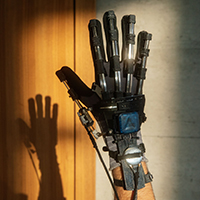
Hands are our most important tools. Many stroke survivors struggle with a serious loss of function in their affected hand. ETH researchers are developing innovative solutions to help people in rehabilitation – and in everyday life.
Decision time predicts the risk of depression relapse
News

Researchers from ETH Zurich and other universities have shown that it is possible to predict the risk of relapsing into depression after stopping antidepressant medication. People who relapse take longer to decide how much effort to invest for a reward.
Zebra finches learn their courtship song efficiently
News
Zebra finches are very efficient at learning their courtship songs, as researchers from ETH Zurich and the University of Zurich have shown. In the morning, the birds remember the positive learning progress of the previous day, but forget the failures overnight.
Failure of the molecular bodyguard in Parkinson’s disease
News
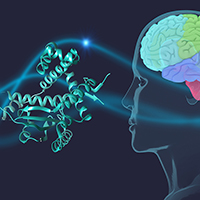
Scientists from ETH Zurich and the University of Basel’s Biozentrum have shown that chaperone proteins dynamically bind to the Parkinson protein α-synuclein. If this interaction is disturbed, it leads to cell damage and the formation of aggregates typical for the disease.
Feeling legs again improves amputees’ health
Press release
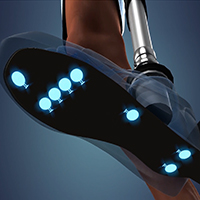
Two volunteers are the first above-knee amputees in the world to feel their prosthetic foot and knee in real time. Their bionic prosthesis, which was developed by an international team of researchers, features sensors that connect to residual nerves in the thigh. The resulting neurofeedback greatly reduces physical and mental strain for users of the prosthesis.
What stress does to the brain
News

Researchers at ETH Zurich have shown for the first time that selective release of the neurotransmitter noradrenaline reconfigures communication between large-scale networks in the brain. Their findings provide insights into rapid neural processes that occur in the brain during stressful situations.
Deep inside the brain
- News
- Globe magazine
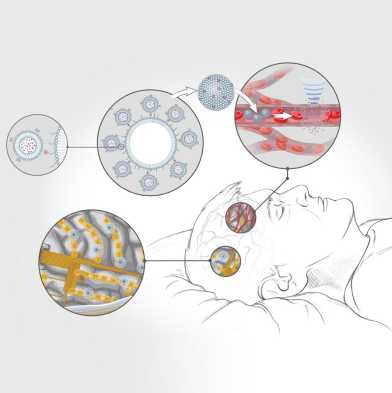
ETH researchers are using brain stimulation to investigate the consequences of stress and to find new therapies for treating stress-related psychiatric diseases. One day it may even be possible to cure brain disorders quite literally in our sleep – without taking pills.
Breaking down pathological protein aggregates
News
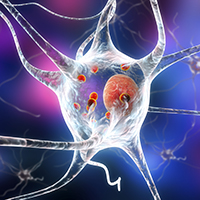
ETH researchers have discovered a new mechanism that brain cells use to protect themselves from protein aggregates. Such aggregates play a key role in Parkinson’s and other neurodegenerative diseases. This new finding might provide the basis for new therapeutic approaches.
Visualising mental valuation processes
News

Rafael Polanía and his team of ETH researchers have developed a computer model capable of predicting certain human decisions. With it, researchers can predict for example which food someone in a supermarket will choose to buy – valuable information for marketing and health.
How birds learn
News

Songbirds can acquire new abilities both through observation and through trial and error. However, skills acquired with the latter method are more easily adapted to new situations, as scientists at ETH and the University of Zurich have been able to demonstrate. The researchers also see parallels to how children learn.
Marker substance for research into brain diseases
News
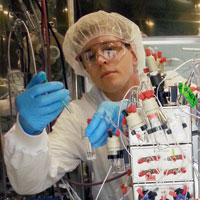
A new substance makes particular molecules in the brain visible using imaging, enabling better research into brain diseases.
A research career shaped by supercomputing
News
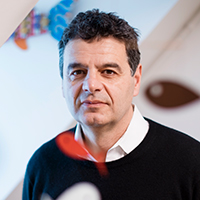
ETH Professor Petros Koumoutsakos wanted to embark on a career at the United Nations. Today, he is one of the world’s leading researchers in the simulation of fluid dynamics using supercomputers.
Brain signals for drug screening
News
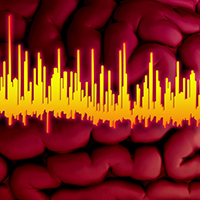
An international team led by ETH researchers has developed a technique that uses electrical brain signals to more precisely evaluate the effect of drugs on the brain. It could be of particular use in the early development phase of anti-epilepsy medication.
Exit through the lymphatic system
News
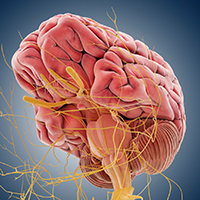
ETH scientists have disproved a decades-old orthodoxy: cerebrospinal fluid does not leave the cranial cavity via blood vessels, but instead through the lymphatic system. This finding has far-reaching implications in new treatments for dementia.
How songbirds learn a new song
News

As an international team of scientists has now shown, songbirds are minimalists when it comes to learning a new song. The birds’ learning strategy resembles the methods used by computer scientists for document comparison.
Area of the brain affected by autism detected
News
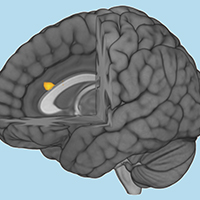
Brain researchers at ETH Zurich and other universities have shown for the first time that a region of the brain associated with empathy only activates very weakly in autistic people. This knowledge could help to develop new therapies for those affected by autism.
High-fat diet disrupts brain maturation
Press release

The latest study by researchers from ETH Zurich and the University of Zurich suggests that excessive consumption of fatty foods could severely disrupt the development of the prefrontal cortex in the maturing brains of young people. This could potentially lead to cognitive defects in later adulthood in areas such as learning and memory, personality and impulse control.
Visualising muscle disease
News

Researchers at ETH Zurich have developed a new marker substance for positron emission tomography (PET) that will allow them to monitor the progression of the degenerative muscle disease amyotrophic lateral sclerosis (ALS) in a patient’s brain.
Reversal of trauma is inherited
News
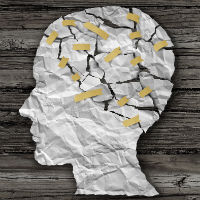
Behaviors caused by traumatic experiences in early life are reversible. Researchers from the University of Zurich and ETH Zurich could demonstrate that environmental enrichment allows trauma-related symptoms in mice to be reversed. This is the first evidence that positive environmental factors can correct behavioral alterations which would otherwise be transmitted to the offspring.
Brain to foot: come in, foot!
News
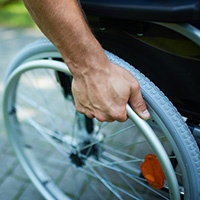
Injuries to the spinal cord partially or completely disrupt the neural pathways between the brain and the limbs. The consequences for the representation of the affected limbs in the brain can be drastic. ETH researchers have now measured how severely this representation is affected.
"Alan Turing's ideas still influence research"
News

Founded in 2015, the new Turing Centre at ETH Zurich brings together researchers and students of science, engineering and humanities. In an interview with ETH News, Managing Director Giovanni Sommaruga and his New Zealand co-directors Diane Proudfoot and Jack Copeland explain why the Centre inspires blue skies research and what it all has to do with ‘child machines’.
Polybahn Pitch featuring Nicole Wenderoth
News
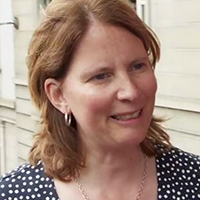
Riding the Polybahn from Central up to ETH Zurich with Nicole Wenderoth: the Professor for Neural Control of Movement and head of ETH Zurich’s Institute of Human Movement Science and Sport tells us in a new Polybahn Pitch how she can influence someone else’s brain.
Chameleon proteins make individual cells visible
News
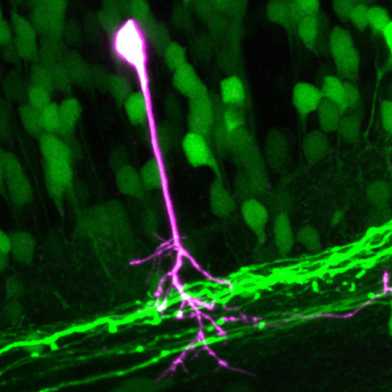
Researchers discovered a new mechanism of how fluorescent proteins can change colour. It enables the microscopic visualization of individual cells in their three-dimensional environment in living organisms.
Spinal cord neurons that control pain and itch
News
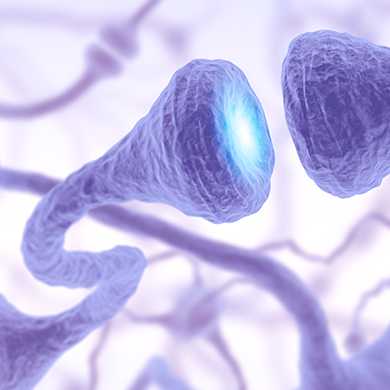
The spinal cord transmits pain signals to the brain. But not all the impulses arrive at their destination: Certain neurons act as checkpoints and determine whether a pain signal is relayed or not. Researchers from ETH Zurich and the University of Zurich identified these neurons. Moreover, they developed means to specifically activate these neurons, which reduces not only pain – but astonishingly also alleviates itch.
Science to aid independence in old age
News

ETH Zurich is taking part in EIT Health, a new major EU research programme. As part of the project, more than 140 European companies and research institutes are developing solutions for problems in the field of health and old age.
How blood vessels grow in the brain
News
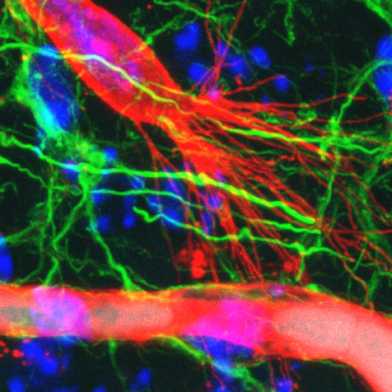
Thomas Wälchli’s goal is to curb the growth of brain tumours. In his doctoral thesis at ETH Zurich, the physician examined how blood vessels develop in the brain, as this process also promotes tumour growth. The scientist developed a technique that allows new insights into the specific developmental stages of blood vessels in the brain.